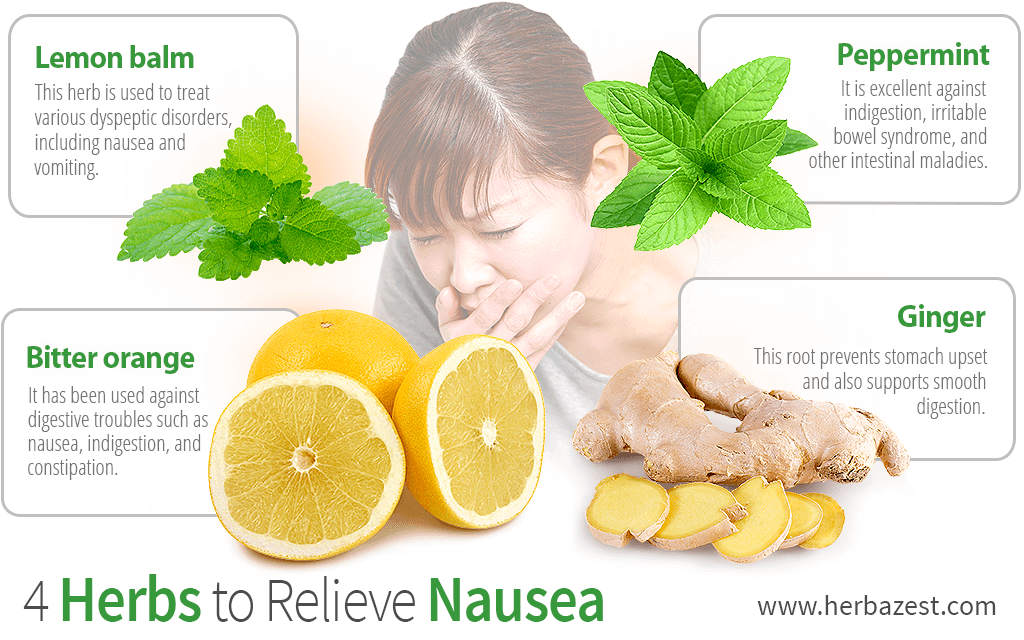Welcome to this post about the benefits of ginger for digestive health. Ginger has been used for centuries as a natural remedy for a variety of ailments, and its benefits for digestive health are well-documented. In this post, we will explore the top 7 benefits of ginger for digestive health, including how it can relieve nausea and vomiting, improve digestion, reduce inflammation, alleviate gas and bloating, protect against stomach ulcers, boost immunity, and alleviate menstrual cramps. We will dive into the science behind these benefits and how you can incorporate ginger into your diet to improve your digestive health. So, sit back, relax, and join us on this journey to explore the amazing benefits of ginger for digestive health.
1, Relieves nausea and vomiting.
Ginger is well-known for its ability to relieve nausea and vomiting. Its natural anti-inflammatory properties can help soothe the digestive tract and reduce the symptoms of these conditions.
Several studies have shown that ginger can be particularly effective in reducing the symptoms of motion sickness, which can cause nausea and vomiting in some people. In fact, a study published in the Journal of Travel Medicine found that taking ginger supplements reduced the severity of motion sickness symptoms by 30%.
Ginger has also been shown to be effective in reducing morning sickness during pregnancy. A study published in Obstetrics and Gynecology found that taking ginger supplements reduced nausea and vomiting in pregnant women by more than 50%.
In addition, ginger may be helpful in reducing chemotherapy-induced nausea, which can be a side effect of cancer treatment. A review of several studies published in the European Journal of Cancer Care found that ginger was effective in reducing the severity of chemotherapy-induced nausea in cancer patients.
Overall, ginger is a natural and effective remedy for nausea and vomiting, particularly for motion sickness, morning sickness during pregnancy, and chemotherapy-induced nausea. Consider incorporating ginger into your diet or taking ginger supplements for natural relief. However, it is always best to consult with a healthcare professional before trying any new treatments, especially if you have a medical condition or are taking medication.
2, Improves digestion.
Ginger can be very beneficial for improving digestion. Its active compounds can stimulate the production of digestive juices and enzymes, which help break down food more effectively.
In addition, ginger has been shown to have natural anti-inflammatory properties that can help soothe the digestive tract and reduce inflammation, which can contribute to digestive discomforts like bloating, constipation, and other gastrointestinal issues.
Several studies have demonstrated the positive effects of ginger on digestion. One study published in the World Journal of Gastroenterology found that ginger improved gastric emptying and reduced feelings of fullness after a meal. Another study published in the European Journal of Gastroenterology and Hepatology found that ginger reduced symptoms of indigestion, bloating, and flatulence in people with functional dyspepsia.
Overall, ginger can be a valuable addition to your diet for improving digestion and preventing digestive discomforts. However, it is always best to consult with a healthcare professional before trying any new treatments, especially if you have a medical condition or are taking medication.
3, Reduces inflammation.
Ginger contains compounds such as gingerols and shogaols, which are known for their potent anti-inflammatory properties. These compounds have been shown to reduce inflammation throughout the body, including in the digestive system.
Inflammation in the digestive system can lead to a variety of digestive problems, including ulcers, irritable bowel syndrome (IBS), and inflammatory bowel disease (IBD). Research has demonstrated that ginger can help alleviate inflammation and reduce symptoms associated with these conditions.
For example, a study published in the Journal of Medicinal Food found that ginger reduced inflammation in people with osteoarthritis. Another study published in the Journal of Alternative and Complementary Medicine found that ginger reduced inflammation in people with ulcerative colitis, an inflammatory bowel disease.
In addition, ginger has been shown to have a protective effect against stomach ulcers by reducing inflammation in the stomach lining. This can be especially helpful for people who regularly use nonsteroidal anti-inflammatory drugs (NSAIDs), which can irritate the stomach lining and increase the risk of ulcers.
Overall, the anti-inflammatory properties of ginger make it a promising natural remedy for reducing inflammation and alleviating symptoms of various digestive conditions. However, as always, it is best to consult with a healthcare professional before trying any new treatments, especially if you have a medical condition or are taking medication.
4, Relieves gas and bloating.
Ginger has been shown to have properties that can help relieve gas and bloating. Its active compounds can relax the muscles in the digestive tract, allowing gas to pass more easily and reducing feelings of bloating.
In addition, ginger has natural anti-inflammatory properties that can help reduce inflammation in the gut, which is a common cause of bloating. This can be especially helpful for people with digestive conditions like irritable bowel syndrome (IBS) or inflammatory bowel disease (IBD).
Several studies have shown the positive effects of ginger on gas and bloating. For example, a study published in the Journal of Clinical Gastroenterology found that ginger reduced bloating in people with functional dyspepsia. Another study published in the Journal of Agricultural and Food Chemistry found that ginger reduced gas and bloating in a group of people who consumed a gas-producing meal.
Overall, ginger can be a natural and effective remedy for relieving gas and bloating. Consider adding ginger to your diet or taking ginger supplements to experience these benefits. However, it is always best to consult with a healthcare professional before trying any new treatments, especially if you have a medical condition or are taking medication.
5, Protects against stomach ulcers.
Ginger has been shown to have a protective effect against stomach ulcers. Its active compounds can help reduce the production of stomach acid and protect the lining of the stomach from damage caused by acid.
Stomach ulcers are often caused by a buildup of stomach acid, which can erode the lining of the stomach and cause pain and discomfort. Ginger can help reduce the production of stomach acid, which can be especially helpful for people who regularly use nonsteroidal anti-inflammatory drugs (NSAIDs), which can irritate the stomach lining and increase the risk of ulcers.
In addition, ginger has been shown to have a direct protective effect on the stomach lining. A study published in the World Journal of Gastroenterology found that ginger extract reduced the severity of stomach ulcers in rats by protecting the lining of the stomach from damage.
Overall, the protective effects of ginger against stomach ulcers make it a promising natural remedy for people who are at risk of developing ulcers or who have a history of ulcers. However, it is always best to consult with a healthcare professional before trying any new treatments, especially if you have a medical condition or are taking medication.
6, Boosts immunity.
Ginger contains antioxidants, such as gingerols and shogaols, that have been shown to have immune-boosting properties. These compounds can help stimulate the immune system and protect against infections and diseases that can affect the digestive system.
Research has demonstrated the immune-boosting effects of ginger. For example, a study published in the Journal of Ethnopharmacology found that ginger extract improved the immune response in mice by increasing the production of immune cells. Another study published in the Journal of Nutrition found that ginger extract reduced inflammation and oxidative stress in the colon, which can contribute to the development of colon cancer.
In addition, ginger has antimicrobial properties that can help protect against infections that can affect the digestive system, such as H. pylori, a bacteria that can cause stomach ulcers and gastritis.
Overall, the immune-boosting properties of ginger make it a promising natural remedy for protecting against infections and diseases that can affect the digestive system. Consider adding ginger to your diet or taking ginger supplements to experience these benefits. However, it is always best to consult with a healthcare professional before trying any new treatments, especially if you have a medical condition or are taking medication.
7, Alleviates menstrual cramps.
Ginger has been shown to have properties that can alleviate menstrual cramps. Its active compounds can help reduce inflammation and relax the muscles in the uterus, reducing pain and discomfort.
Menstrual cramps are often caused by contractions in the uterus, which can be painful and uncomfortable. Ginger can help relax the muscles in the uterus, which can reduce the severity of menstrual cramps.
In addition, ginger has natural anti-inflammatory properties that can help reduce inflammation in the body. Menstrual cramps are often associated with inflammation in the uterus, and reducing this inflammation can help alleviate pain and discomfort.
Several studies have shown the positive effects of ginger on menstrual cramps. For example, a study published in the Journal of Alternative and Complementary Medicine found that ginger capsules reduced the severity of menstrual cramps in women compared to a placebo. Another study published in the Journal of Pain found that ginger was effective in reducing menstrual pain and associated symptoms.
Overall, ginger can be a natural and effective remedy for alleviating menstrual cramps. Consider adding ginger to your diet or taking ginger supplements to experience these benefits. However, it is always best to consult with a healthcare professional before trying any new treatments, especially if you have a medical condition or are taking medication.
That concludes our discussion on the top 7 benefits of ginger for digestive health. We hope that you found this post informative and helpful in understanding how ginger can be an effective natural remedy for a variety of digestive issues. Remember, incorporating ginger into your diet or taking ginger supplements can be a simple and effective way to improve your digestive health. Thank you for watching, and don't forget to like, share, and subscribe for more health and wellness content.




:max_bytes(150000):strip_icc()/VWH_Illustration_Natural-Remedies-for-Stomach-Ulcers_Danie-Drankwalter_Final-53fe423966274ed0930616388c3d0c9d.jpg)


Comments
Post a Comment